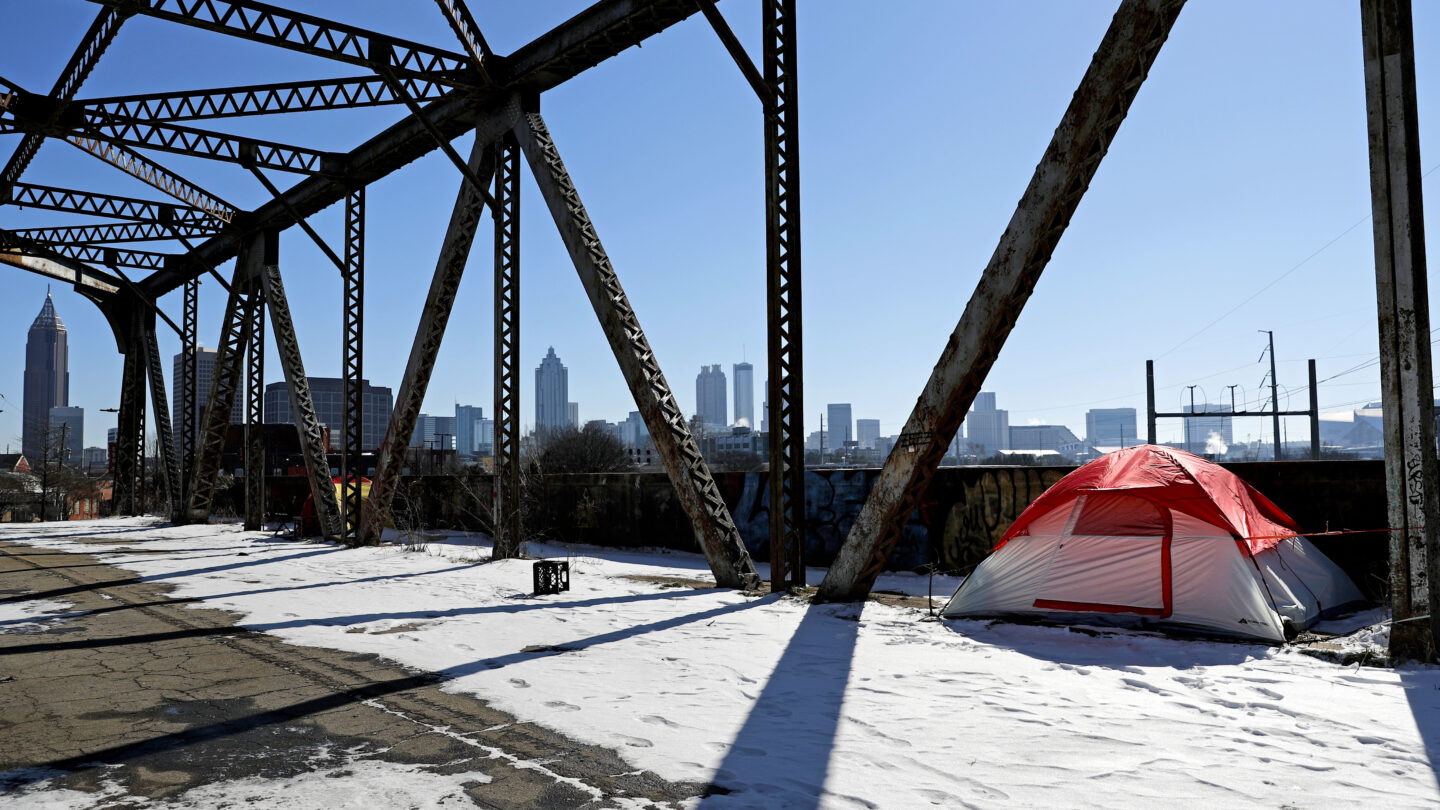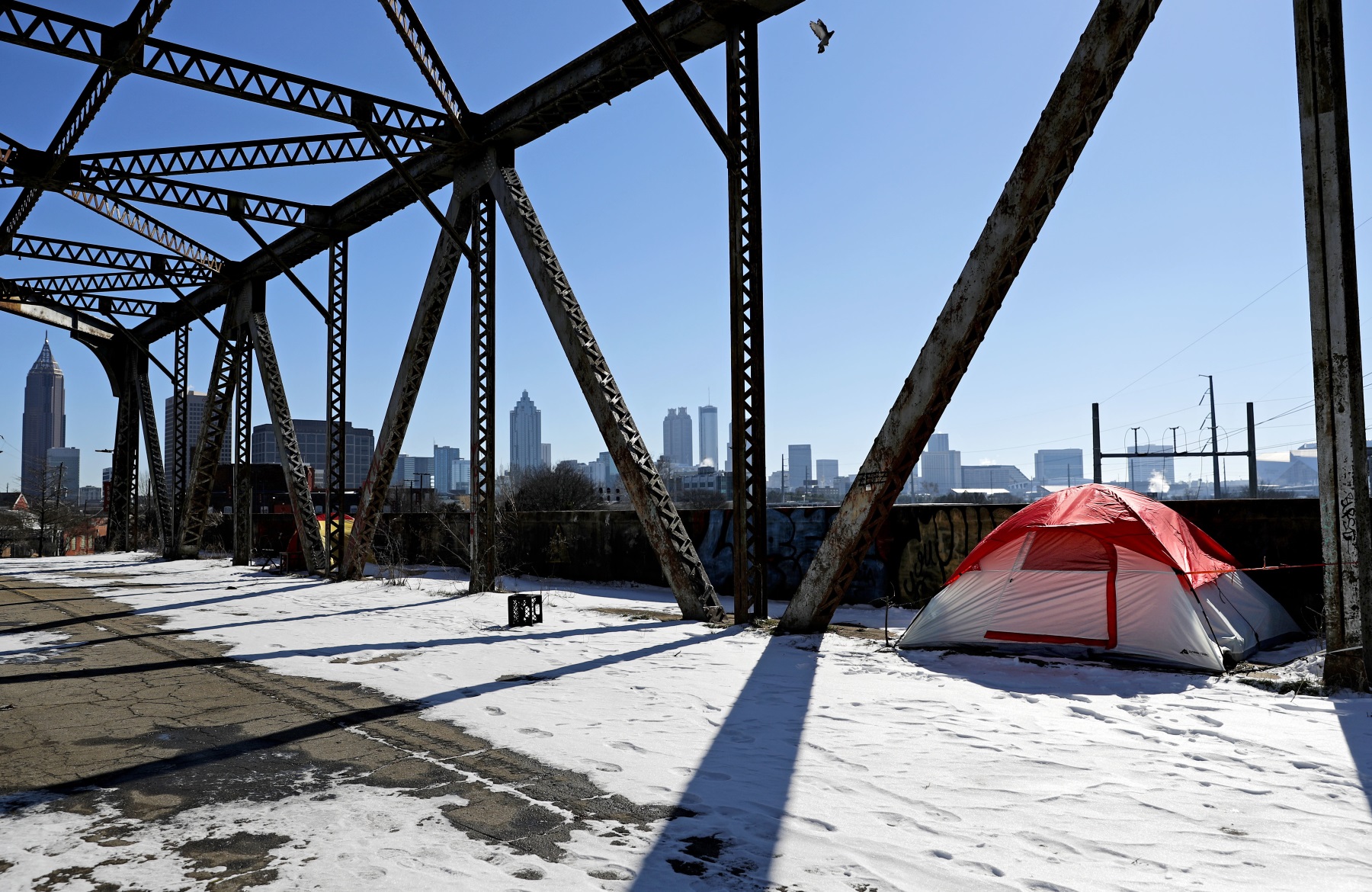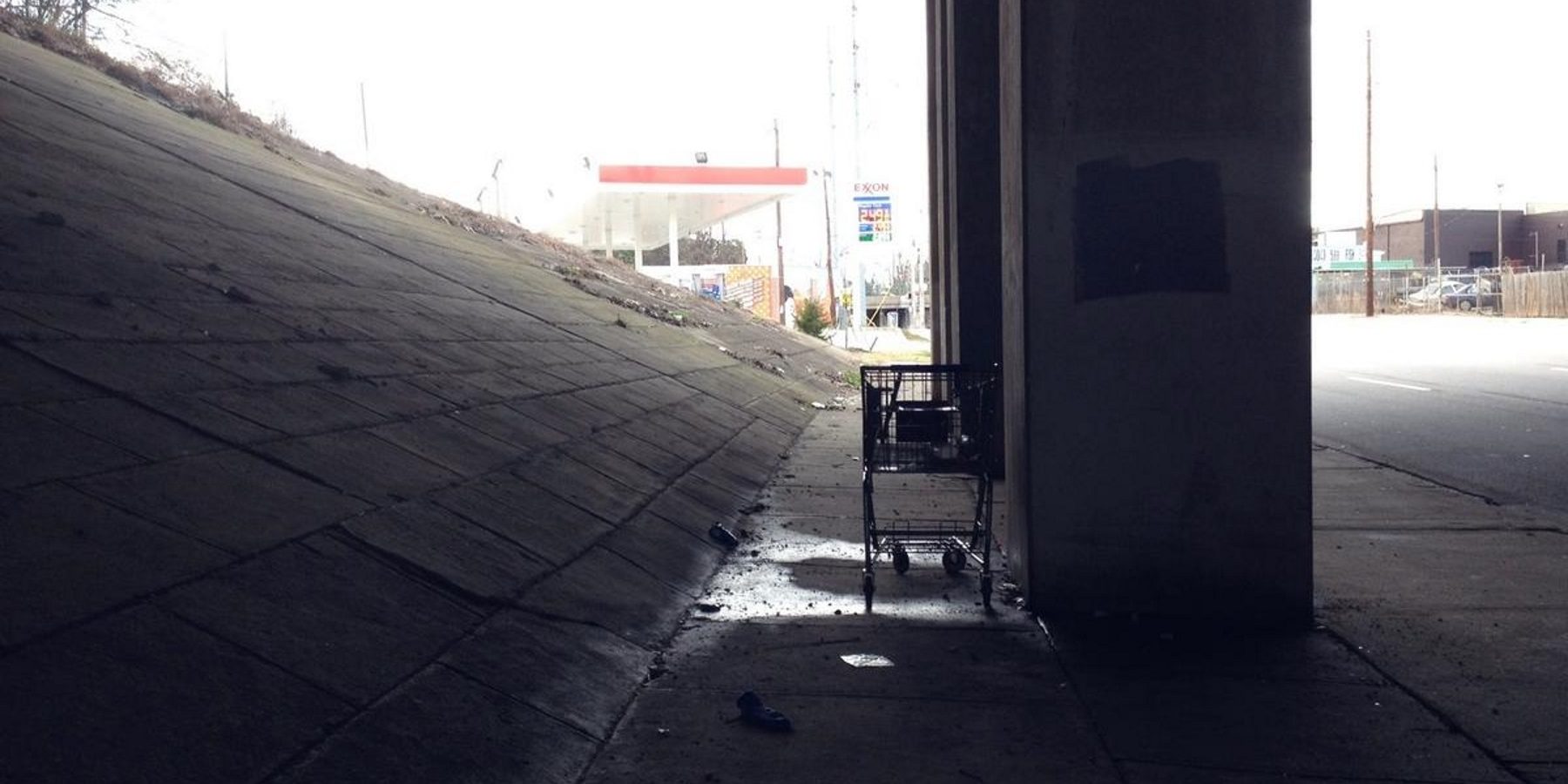State bill criminalizing homeless encampments advances in Georgia Senate

A state Senate bill criminalizing sleeping outside moved forward in a hectic committee meeting Tuesday.
The legislation, SB 535, would create a state-level misdemeanor charge for anyone who sets up camp on public property. It would also punish cities that refuse to enforce the ban by denying them state grants.
In the Senate Committee on Government Oversight, several Atlanta area lawmakers voiced opposition to the bill, which they said effectively criminalized homelessness.
They also expressed concern that there wasn’t enough input from the city with the biggest homeless population in the state — Atlanta.
“My question is have you talked to the city of Atlanta?” Sen. Nikki Merritt, who represents parts of Gwinnett County. “Have you had a meeting? Have you talked to advocates?”
The bill’s sponsor, Sen. Carden Summers of Cordele in South Georgia, said he had not met with Atlanta. But he stressed this is not a bill aimed at Atlanta.
“There are other cities and counties and municipalities that have homeless issues,” Summers said.
Still, the metro Atlanta lawmakers initially had enough votes to table the effort until another meeting. Several housing advocates, ready to testify against the bill, then apparently left the room.
But shortly after, more committee members showed up, allowing the committee chairman, Sen. Marty Harbin of Tyrone, to move the legislation through. The bill now must go before the full Senate.
“Our issue is really safety for them,” Harbin said during the meeting, referring to people without permanent shelter. “It’s trying to create a safety net to help these people.”
The bill encourages cities and counties to develop government-sanctioned encampments, where those living under bridges or in parks could stay instead.
The version approved in the committee was a pared-down substitute. The original language would have also discouraged cities from using federal homeless funds for permanent supportive housing. Similar legislation was introduced in the state House last year.
Behind both pieces of legislation is a national think tank called the Cicero Institute. The group has pushed similar efforts in Texas and Arizona. Its advisors have been present in each of Georgia’s hearings to testify in favor of street homelessness bans.
Not mentioned in the committee meeting was the fact that urban camping is already illegal in Atlanta. The city has faced criticism for clearing encampments in the past.







